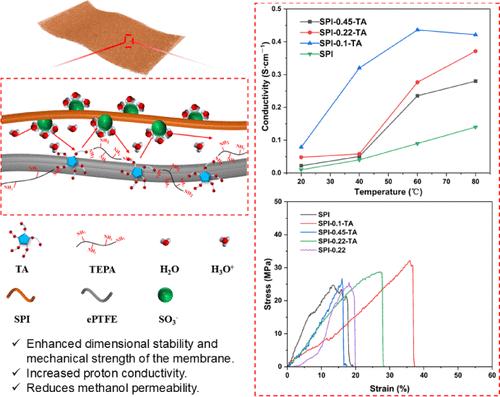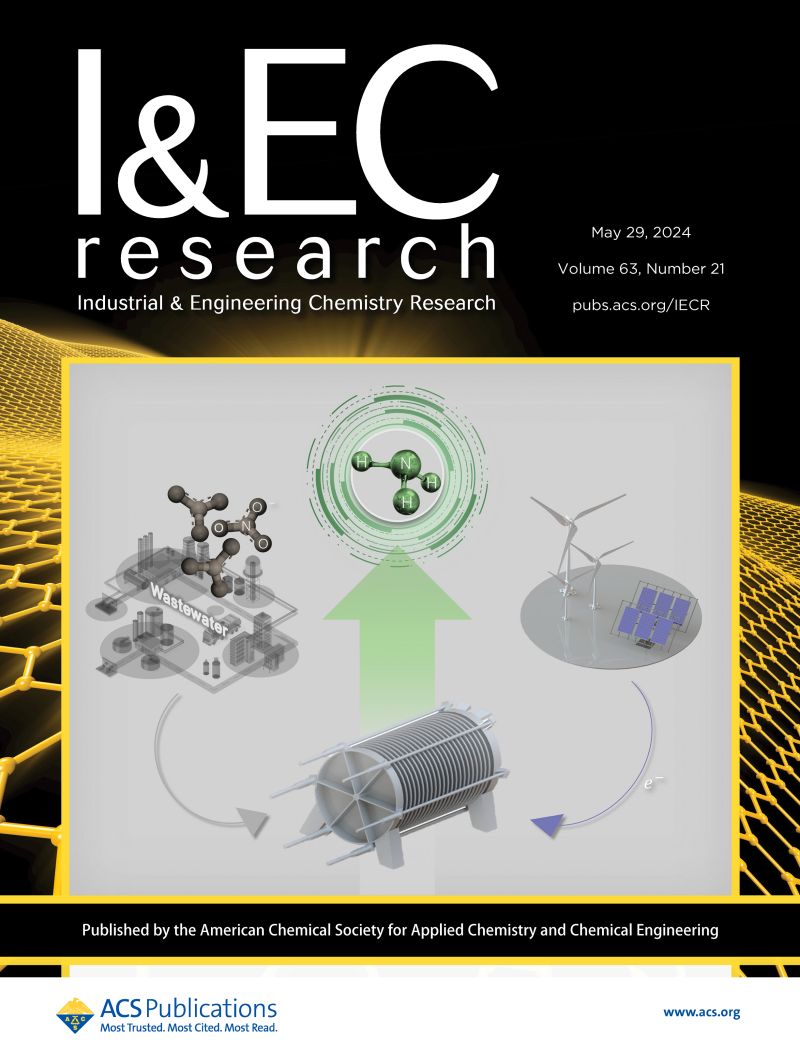High Conductive and Dimensional Stability Sulfonated Polyimide/Expanded Polytetrafluoroethylene (ePTFE) Composite Proton Exchange Membranes for Methanol Fuel Cells
IF 3.9
3区 工程技术
Q2 ENGINEERING, CHEMICAL
引用次数: 0
Abstract
To address swelling, reduced mechanical strength, and high methanol permeability in sulfonated polyimide (SPI) proton exchange membranes, a composite membrane was developed by incorporating phenolic amine-modified porous expanded polytetrafluoroethylene (ePTFE) as a reinforcing skeleton within the SPI matrix. The resulting membrane (pore size: 0.1 μm) demonstrates a proton conductivity of 0.42 S/cm at 80 °C, low swelling rates (4% surface, 10% thickness), high tensile strength (33 MPa), and reduced methanol permeability (0.11 × 10–6 cm2/s). The ePTFE skeleton enhances mechanical strength, limits water absorption, and ensures continuous proton transport. Additionally, hydrogen bonding between the phenolamine groups on ePTFE and the sulfonic acid groups of SPI further improves the membrane’s performance. This study presents a straightforward strategy for developing high-performance SPI membranes.

用于甲醇燃料电池的高导电性和尺寸稳定性磺化聚酰亚胺/膨胀聚四氟乙烯(ePTFE)复合质子交换膜
为了解决磺化聚酰亚胺(SPI)质子交换膜的膨胀、机械强度降低和甲醇渗透性高的问题,在SPI基质中加入酚醛胺修饰的多孔膨胀聚四氟乙烯(ePTFE)作为增强骨架,开发了一种复合膜。制备的膜(孔径为0.1 μm)在80°C时的质子电导率为0.42 S/cm,溶胀率低(表面4%,厚度10%),抗拉强度高(33 MPa),甲醇渗透率降低(0.11 × 10-6 cm2/ S)。ePTFE骨架增强了机械强度,限制了水分的吸收,并确保了质子的连续输送。此外,ePTFE上的酚胺基与SPI的磺酸基之间的氢键进一步提高了膜的性能。本研究提出了一种开发高性能SPI膜的直接策略。
本文章由计算机程序翻译,如有差异,请以英文原文为准。
求助全文
约1分钟内获得全文
求助全文
来源期刊

Industrial & Engineering Chemistry Research
工程技术-工程:化工
CiteScore
7.40
自引率
7.10%
发文量
1467
审稿时长
2.8 months
期刊介绍:
ndustrial & Engineering Chemistry, with variations in title and format, has been published since 1909 by the American Chemical Society. Industrial & Engineering Chemistry Research is a weekly publication that reports industrial and academic research in the broad fields of applied chemistry and chemical engineering with special focus on fundamentals, processes, and products.
 求助内容:
求助内容: 应助结果提醒方式:
应助结果提醒方式:


